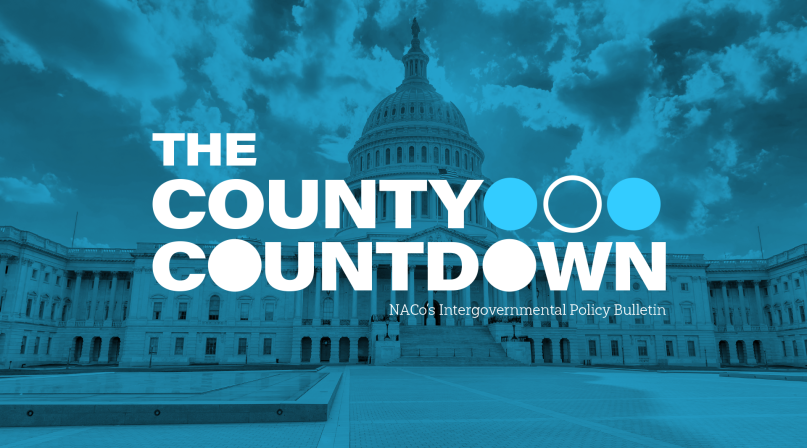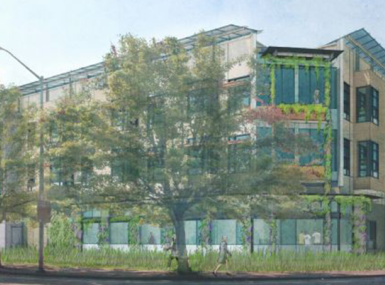County Countdown – July 1, 2024
Upcoming Events
Related News

Every other week, NACo’s County Countdown reviews top federal policy advocacy items with an eye towards counties and the intergovernmental partnership.
Watch the video above and explore NACo resources below.
Supreme Court Decisions
The Supreme Court is deciding several cases with implications for counties.
- Chiaverini v. Ohio: Addressing probable cause and malicious prosecution claims, this decision will not significantly impact counties’ ability to defend against claims of malicious prosecution.
- Gonzalez v. Trevino: The ruling could change the standard of evidence needed for an arrest to be considered retaliatory. Counties should review law enforcement policies to guard against increased litigation while maintaining the ability to defend against frivolous claims.
- Oregon v. Johnson: While not decided as of this week's filming, a decision was handed down on Friday, June 28. For the latest updates, check out NACo’s Supreme Court Advocacy Hub.
Fire and Emergency Services
Congress recently passed the Fire Grants and Safety Act, which extended the Assistance to Firefighters Grant and Staffing for Adequate Fire and Emergency Response programs.
- Crucial support: Pending President Biden’s signature, final passage ensures continued federal support for local fire departments, allocating $750 million annually to maintain safety and emergency response capabilities in counties nationwide.
- Extended programs: These crucial programs, facing a statutory termination date of September 30, 2024, have now been extended to September 30, 2030.
Improving the Child Welfare System
Counties employ 257,000 human services workers nationwide and invest over $62 billion annually in federal, state and local funds into safety net services.
- Zoom in: This includes implementing federal and state policies surrounding prevention and response to child abuse and neglect.
- The county role: Counties in 11 states are wholly or partially responsible for administering the child welfare system.
- New resource: NACo has a new resource that makes policy recommendations for transforming and improving the child welfare system nationwide.
Behavioral Health Clinics
The U.S. Department of Health and Human Services (HHS) has announced that 10 new states have joined the Certified Community Behavioral Health Clinic (CCBHC) Medicaid Demonstration Program.
- New states: The new states include Alabama, Illinois, Indiana, Iowa, Kansas, Maine, New Hampshire, New Mexico, Rhode Island and Vermont.
- Program expansion: Enabled by the Bipartisan Safer Communities Act, this expansion allows HHS to add 10 new states to the CCBHC program every two years.
- Impact on counties: Counties in these states will benefit from increased Medicaid funding, improved public health and more efficient use of healthcare resources.
Payments in Lieu of Taxes (PILT)
The Department of the Interior has announced $621.2 million in PILT funding for 2024, a $42.4 million increase from last year.
- Dig deeper: A complete list of funding by state and county is available here. You can also check NACo’s County Explorer to see detailed county-by-county information on PILT funding levels.
- Essential services: PILT payments help local governments in public lands counties provide essential services such as firefighting, police protection, public school construction and search and rescue operations.
Related News

Congress Passes Landmark Outdoor Recreation Package
Lawmakers passed the bipartisan EXPLORE Act (H.R.6492) on December 19 to boost outdoor recreation opportunities on public lands for county residents and visitors and aid gateway communities

Sonoma County creates solutions to homeless crisis
Wildfire devastation and the COVID-19 pandemic contributed to a homelessness crisis in Sonoma County, Calif., prompting the county to create more comprehensive housing offerings to better meet the needs of its most vulnerable populations.

HRSA Releases Final Reentry Care Guidelines Following NACo Input
On November 29, the Health Resources and Services Administration (HRSA) released their final Policy Information Notice (PIN) with policy guidance for health centers who support transitions in care for justice-involved individuals reentering their communities.





